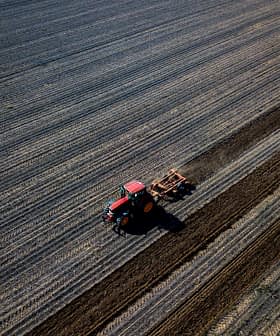A newly developed unsaturated fat stays solid at room temperature and could eventually substitute the solid saturated fats commonly used by food companies, such as palm oil or coconut oil.
Researchers in Belgium who developed the new fat named it Sterolife and in a press release from KU Leuven, the scientists wrote that “it is an odorless and colorless fat.”
We believe that Sterolife will become a game-changer in the food industry and in the search for healthy alternatives to existing high-fat products.
Unsaturated fats such as olive oil and sunflower oil are used by food companies for many of their products. Still, plenty of food items require specific textures, such as spreadability, which is a characteristic of saturated fats.
Given its properties, “Sterolife can reduce the saturated fat content in products without sacrificing the quality and texture,” said Eva Daels, a scientist at the Food & Lipids research group.
See Also:Palm Oil Bans Meet Resistance in Southeast AsiaThe researchers explained that Sterolife is made from plant sterols, which are often found in modest quantities in fruits, vegetables, nuts and grains.
“The use of plant sterols offers benefits in terms of the environment and sustainability,” said Imogen Foubert, one of the project researchers. “These substances can be found in the bypass flows of existing production processes.”
Sterols are a minor compound that can also be found in olive oil. Clinical studies have shown that the dietary intake of phytosterols decreases blood cholesterol levels and likely inhibits its absorption from the small intestine.
Moreover, sterols have been shown to act as anti-inflammatory, anti-bacterial, anti-fungal, anti-ulcerative, anti-oxidant and anti-tumor agents. The total sterols content in olive oil ranges between 1,000 to 2,200 milligrams per kilogram.
Foubert emphasized how the inner sustainability of Sterolife “stands in stark contrast to the production of palm oil, the most consumed fat in the world.”
“Production takes place exclusively in tropical areas and involves deforestation of the rainforest, loss of biodiversity and huge CO2 emissions,” she added.
According to United States Department of Agriculture data, in the last 10 years, palm oil production has increased from 56 million tons to 76 million tons, with Indonesia and Malaysia as major exporters.
Palm oil is widely used by the food industry but it is also found in shampoo, cosmetics and cleaning products. Palm oil is also frequently used in several Asian countries as a biofuel for vehicles.
Coconut oil is mostly exported by the Philippines, Indonesia and India and, according to the USDA, in 2021 global production almost reached 3.5 million tons.
The researchers at KU Leuven said that the next step for Sterolife is to develop the product with the goal of bringing it to the market.
The study, financed by the Flemish Agency for Innovation and Entrepreneurship, will test the new fat “to determine if and how Sterolife can be used as an ingredient in food products.”
This new research will initially focus on the existing products promoted as cholesterol-lowering products which “still contain a significant amount of saturated fat,” said Daels. “Initially, this will involve margarines, spreads and baking products such as biscuits, muffins and cereal bars.”
“We will test how our fat behaves in these specific products and, based on this knowledge, we will fine-tune the production process,” she added. “There are still different obstacles to overcome but we believe that Sterolife will become a game-changer in the food industry and in the search for healthy alternatives to existing high-fat products.”









